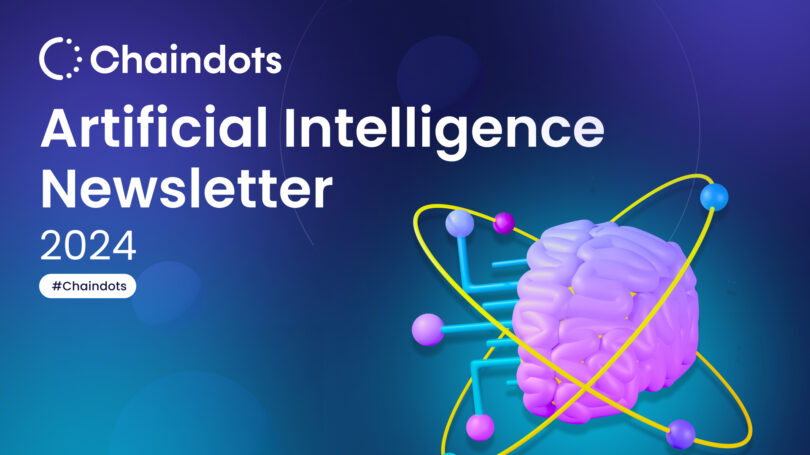AI Report (March 2024)

PERU: 🤯The use of AI in management systems 🤯
The technology consulting firm Izertis developed a project to improve the efficiency of the Intellectual Property Management System in Peru through IA.
The aforementioned project uses artificial intelligence to develop tools to improve the management and administration of the trademark registration and citizen services of the National Institute for the Defense of Competition and Intellectual Property Protection (INDECOPI).
Among the proposed solutions, the following stand out:
- A virtual assistant for consultations on trademark registration services.
- A system for analyzing the similarity of figurative marks.
- Improving the trademark classification process.
- An application that facilitates the distribution of workload among the trademark registration team.
- An advisory tool to assess the registrability of trademarks.
INDIA: 🚀The launch of the India AI Mission 🚀
The Indian Cabinet approved an allocation of approximately USD 1.24 Billion for the “India AI Mission”, which aims to support AI startups and innovations through strategic public and private sector programs and partnerships.
The India AI Mission has the following 7 core initiatives:
- India AI Compute Capacity: to create a scalable, high-end AI computing ecosystem by developing thousands of graphics processing units.
- India AI Innovation Centre: undertake development and deployment of foundational models, especially indigenous large multimodal language models (LMMs).
- India AI Datasets Platform: improve the accessibility, quality and usability of public sector datasets to develop AI innovation.
- India AI Application Development Initiative: to promote AI applications in critical sectors for problem solving from institutions such as Central Ministries, State Departments, among others.
- India AI Future Skills: expanding the scope of AI education by increasing the accessibility of undergraduate and postgraduate programs in AI.
- India AI Startup Financing: supporting and accelerating the creation of high-tech AI startups.
- India AI Safe & Trusted AI: enabling the execution of responsible AI projects, including the development of indigenous tools and frameworks, among others.
According to a tweet made by Narendra Modi, Prime Minister of India, the approval of Mission India AI will empower AI startups and succeed in expanding access to IT infrastructure.
See more: https://pib.gov.in/PressReleasePage.aspx?PRID=2012375
USA: 🇺🇸First Security Consortium for AI 🇺🇸
The U.S. Department of Commerce announced the creation of an AI Security Institute Consortium (AISIC), comprised of more than 200 participating companies from the technology industry, including Microsoft, Google, Apple, Meta, OpenAI and Nvidia.
The new Consortium will aim to develop guidelines for task redeployment, assess AI capabilities, manage risks, provide safety and security, and create a watermark for synthetic content.
According to Gina Raimondo, U.S. Secretary of Commerce, the U.S. government should lead in the creation of standards and tools to control risks and maximize the potential of artificial intelligence in order to establish security standards and protect the U.S. innovation ecosystem.
Gina also stated that it is necessary to maintain the U.S. competitive advantage while at the same time developing AI in a responsible manner.
GLOBAL: 🔍Merger or monopolistic control over AI? 🔍
The Irish Council for Civil Liberties (ICCL) has submitted a letter to the European Commission arguing why the merger between Microsoft and OpenAI should be investigated.
The Council stresses that the merger between the two companies is not simply a partnership but that the tech giant could be exerting monopolistic influence over OpenAI’s artificial intelligence.
According to the Council, small AI companies are becoming increasingly dependent on the infrastructure and financial support of technology giants, with the latter exercising ultimate control over AI development and leveraging their monopoly power over future markets and technologies to increase their profit margins to the detriment of the public interest.
Therefore, the Council demands from the European Commission that there should be a greater degree of regulatory intervention in the ”association” given that it could jeopardize fair competition in the IA market, which would increase prices, restrict choice for consumers and businesses, and there would be less innovation of such a tool.
It emerges from a tweet made by Kris Shrishak, Senior Member of the Irish Council, the proposal that was submitted to the European Commission on the investigation of the Microsoft-OpenAI merger “partnership”:
See more: https://www.iccl.ie/wp-content/uploads/2024/02/20240130-Submission-To-DG-COMP_MS-OpenAI_FINAL.pdf
ECUADOR: 🧑🏫Benefits of AI in the education system 🧑🏫
EATA, a foundation dedicated to pursuing continuous progress in the quality of education in Ecuador, highlights the importance of using artificial intelligence in the educational field.
AI enables the generation of new learning models and concepts capable of improving student understanding by analyzing the skills and development of both the learner and the teacher.
The foundation mentions 4 reasons to use AI in educational classrooms:
- It detects the learning process and performance of students.
- It understands the student based on behavioral patterns.
- Anticipates cases of exclusion and intellectual disorders.
- It provides teaching tools to improve students’ interest.
HONG KONG: ⚠️AI and a new deepfakes scam ⚠️
An employee of a Hong Kong multinational company was tricked by a fraudster who managed to get him to transfer company funds of approximately USD 25 million.
Baron Chan, Acting Chief Superintendent of the Cybersecurity Division of the Hong Kong Police, told a conference broadcast on Radio Television Hong Kong (RTHK) that the employee had received a fake message from the company’s director inviting him to attend a multi-party video call to discuss confidential transactions.
The Hong Kong police claimed that the scammer had previously downloaded videos of the participants and then used AI to add fake voices applied in the video conference.
Baron Chan concluded by alerting the public to these new scam tactics in which fraudsters employ AI in online meetings involving multiple participants.
See more: https://news.rthk.hk/rthk/en/component/k2/1739119-20240204.htm